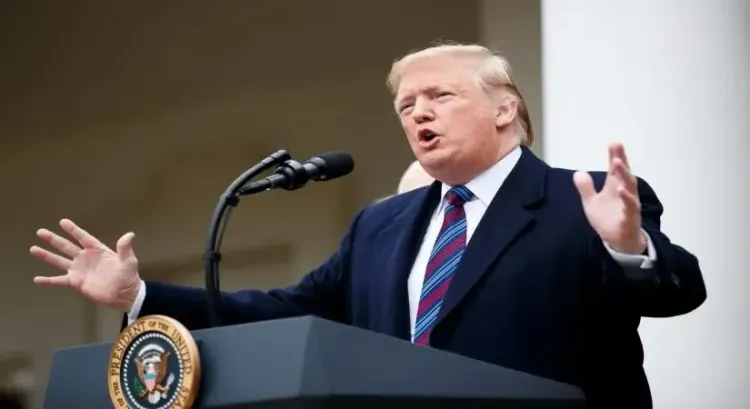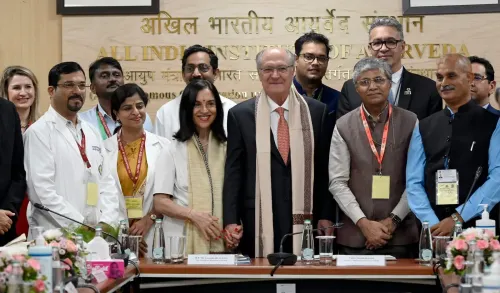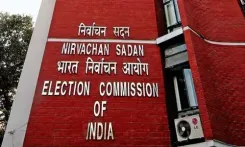Will Trump Urge Republicans to Delay Tariffs on Russian Oil Buyers?

Synopsis
Key Takeaways
- Trump's request for a delay reflects a strategic approach to diplomacy.
- The proposed 500 percent tariff could significantly impact international relations.
- Bipartisan support indicates strong political backing for legislative measures.
- Diplomatic efforts aim to resolve the Ukraine War.
- India's role in Russian oil purchases remains a key focus.
New York, Oct 17 (NationPress) As he gears up for a meeting with Russia's President Vladimir Putin fueled by a sense of renewed optimism, US President Donald Trump has requested that Republican leaders delay any plans to legislate severe penalties on nations purchasing oil from Moscow.
In a statement made on Thursday following his dialogue with Putin, Trump remarked, "It may not be the ideal moment" for the proposed legislation that includes a punitive 500 percent tariff, which Senate Republican Party leader John Thune had intended to advance.
"I will consult with him and House Speaker Mike Johnson,” he disclosed to reporters, “and I will inform them about this, and we will arrive at an appropriate decision" since they were unaware of his diplomatic initiative with Putin aimed at resolving the Ukraine War.
Earlier that day, Thune expressed that "the time has come" to push forward with legislation that would impose a 500 percent tariff on nations purchasing Russian oil, significantly higher than the 25 percent tariff Trump has already imposed on India.
He mentioned that the legislation, developed in collaboration with another Republican Senator, Lindsey Graham, enjoys bipartisan support.
Graham claimed that 84 other senators have endorsed the bill, and a similar initiative in the House of Representatives garnered backing from 100 members.
Although the proposed legislation would grant Trump discretion in its enforcement, it was designed to be uniformly applied to all nations.
Implementing such measures could severely jeopardize Washington's diplomatic relations, given that the European Union, China, and Turkiye also import energy from Russia.
Notably, the US maintains a $5.2 billion trade relationship with Russia, resulting in a $2.4 billion deficit.
"We'll see what unfolds," Trump remarked regarding the forthcoming meeting with Putin in Budapest in the next two weeks.
"This could be such a fruitful discussion that it may lead us towards peace. We are eager to achieve peace,” he added.
Trump expressed optimism about the potential for peace in Ukraine following his conversation with Putin, during which they agreed to reconvene after their August summit in Alaska failed to yield results.
Thus far, Trump has targeted only India with the punitive Russian oil tariff, treating it uniquely while exempting other customers of Moscow.
He mentioned on Wednesday that Prime Minister Narendra Modi assured him of a commitment to reduce Russian oil imports.
"There will be no oil; he’s not procuring oil from Russia. It’s a gradual process, but it will conclude soon,” Trump stated.
India has not verified the occurrence of such a conversation between Trump and PM Modi or the assurance purportedly made. However, the External Affairs Ministry confirmed, "The current Administration has demonstrated interest in enhancing energy cooperation with India. Discussions are ongoing."









